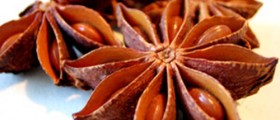
Introduction to licorice root
Licorice root is use by many people all around the world as an herbal remedy for many different health problems.
It is used in traditional Chinese medicine to treat stress and to boos adrenal gland functions as well, but is also used for hypoglycemia and to detoxify the blood and liver as well.
The herb has also been used to cure chronic fatigue syndrome and people who have low blood pressure because of a problem with their adrenal glands have also found that licorice root is an excellent remedy.
There are ingredients in licorice root that counter free radical production that can lead to inflammation and pain for people who have conditions such as lupus.
It can also treat dry coughs and asthma as well.
Licorice root is also used to protect the body from toxins and it also has anti-inflammatory properties that help people who have conditions such as Crohn’s disease and various other gastrointestinal and digestive disorders.
I can also conserve steroids that are naturally produced and can treat skin problems such as psoriasis, eczema and canker sores.
However, licorice root has side effects as well.
Side effects
If people use the herb in excess, they can experience some side effects.
If people use licorice root continuously for a long period of time they can have reduced potassium levels in the body, which can cause damage to the hearts and muscles.
People can also experience an increase in blood pressure as well.
When people drink too much tea made from licorice root, they can experience water retention issues. This can lead to swollen hands, lethargy and puffiness in the face as well.
Licorice also has estrogen stimulating properties that can effect people with related disorders. It can cause problems for people who have fibrocystic breasts, breast cancer or uterine cancer.
It can also reduce the effects of hormone replacement therapies. Side effects can also result if a person uses both licorice root and oral contraceptives at the same time.
People who take ace-inhibitors, Aspirin, digoxin, insulin, laxatives and diuretics should also avoid licorice root.
If someone is overusing the herb, they can experience a weakening of the muscles, chronic fatigue, headaches, swelling, edema, shortness of breath, joint stiffness, and lower testosterone levels.
Pregnant women should also avoid the herb, because they can pass on several side effects to the baby and also run the risk of a premature birth. Women who are breastfeeding should also avoid the herb, because the side effects can be transferred to the baby in that way as well.

















Your thoughts on this
Loading...